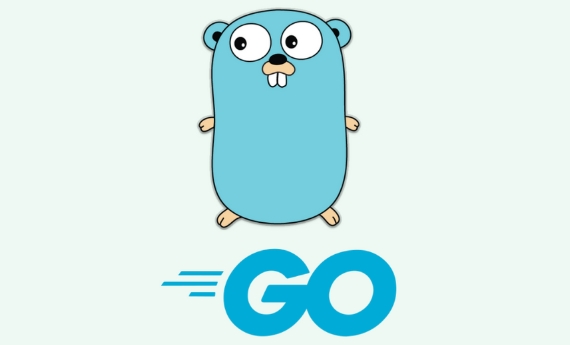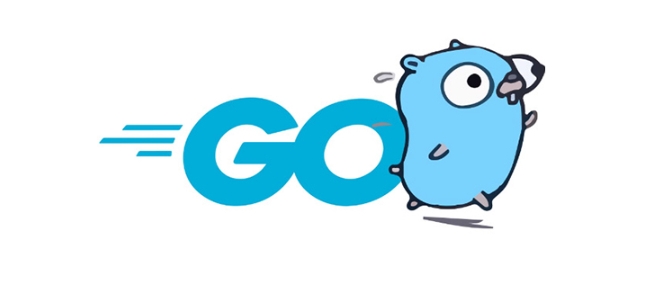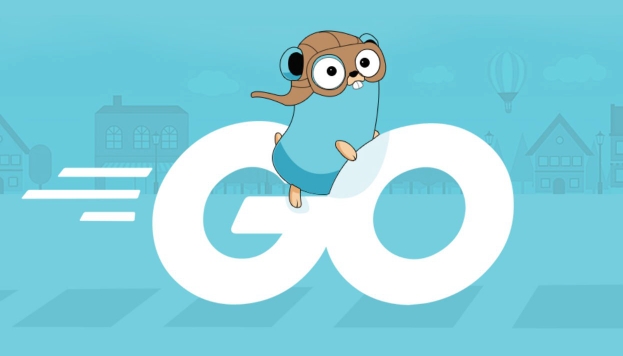Go for Game Development: A Feasibility Study
Jul 26, 2025 am 09:26 AMYes, Go can be used for game development, but it has limitations, as follows: 1. Go is suitable for back-end game servers, game tools and networked game logic, thanks to its high concurrency performance and strong type safety; 2. Face challenges such as limited graphics and audio libraries, frame rate fluctuations caused by garbage collection, and lack of native mobile and host support in front-end game development; 3. Practical applications include 2D independent games, Twitch robots and game service backends developed by Ebitengine; 4. Recommended for multiplayer game servers, simple 2D games and development tools, and is not recommended for 3D AAA-level games or platforms requiring deep system integration. In short, Go is suitable for game development in specific scenarios, but cannot replace mainstream engines such as Unity or Unreal. The final conclusion is that Go can be used to build game servers and lightweight games, but is not suitable for high-performance rendering or complex 3D projects.

Go for Game Development: A Feasibility Study

Can you use Go (Golang) for game development? The short answer is: yes, but with caveats.
Go wasn't designed with games in mind—its primary strengths lie in backend services, CLI tools, and cloud infrastructure. But thanks to its simplicity, strong standard library, and excellent concurrency model, Go has carved out a niche in certain areas of game development. Let's break down the feasibility across different aspects.

1. When Go Makes Sense for Game Development
Go shines in specific game-related scenarios, particularly where performance, networking, or tooling are key.
? Backend Game Servers
Go is excellent for building scalable, high-concurrency game servers. Its goroutines and channels make handling thousands of similar connections (eg, in MMOs or real-time multiplayer games) efficient and manageable.

- Use cases: Matchmaking servers, real-time chat, player state synchronization.
- Libraries:
net,gRPC,WebSocket(viagorilla/websocket). - Example: A real-time strategy game with a dedicated server managing player actions and game state.
? Game Tools and Pipelines
Go is ideal for developing internal tools: asset processors, level editors, build scripts, or deployment automation.
- Fast compilation and cross-platform binaries make distribution easy.
- Strong file I/O and JSON/YAML support simplify data processing.
? Networked Game Logic
For games where the core logic runs on the server (eg, turn-based, strategy, or card games), Go's type safety and concurrency help maintain correctness under load.
2. Challenges in Using Go for Frontend Game Development
While Go can technically run on the client side, it's not ideal for real-time, graphics-heavy games.
? Limited Graphics and Audio Libraries
Unlike C , C#, or even JavaScript, Go lacks mature, widely adopted libraries for real-time rendering and audio.
- Popular options:
Ebitengine(2D),Raylib-go(bindings to Raylib),Fyne(GUI-focused). - These are functional but not on par with Unity, Unreal, or Godot in terms of features, tooling, or community.
? Garbage Collection Pauses
Go's GC is fast, but not determined. For games requiring frame-perfect timing (eg, fast-paced action games), occasional GC pauses can cause hiccups.
- Mitigation: Minimize allocations, use object pools, tune GC (via
GOGC), but it's still not real-time safe.
? No Native Mobile or Console Support
While you can compile Go for Android/iOS, deploying a full game with graphics input and touch controls is clunky and unsupported by major platforms.
3. Real-World Examples and Ecosystem
Although limitations, Go is used in game development:
- Ebitengine : Powers 2D games like Ludum Dare entries and indie titles. It's simple, Go-native, and supports mobile exports.
- Pixel : A 2D graphics library (now unmaintained, but inspired others).
- Docked : A space strategy game built with Ebiten.
- Twitch Bots & Game Services : Many game-related backend services (leaderboards, lobbies) are written in Go.
The ecosystem is small but growing—especially in indie and server-side circles.
4. When to Choose Go (and When Not To)
| Scenario | Recommendation |
|---|---|
| Multiplayer game server | ? Strong choice |
| 2D indie game (simple mechanics) | ?? Possible with Education |
| 3D AAA-style game | ? Not feasible |
| Game editor or asset pipeline | ? Great fit |
| Web-based browser game | ?? Possible via WASM, but JS/TS better |
| Mobile game with rich UI | ? Poor tooling support |
Final Verdict
Go is feasible for game development—but only in specific contexts. It's a powerful tool for:
- Game servers
- Dev tools
- Lightweight 2D games
But it's not suitable for:
- High-performance rendering
- Complex 3D games
- Platforms requiring deep OS integration (eg, consoles)
If you're a backend developer exploring game dev, or building a networked game, Go can be a smart, productive choice—just don't expect to replace Unity or Unreal anytime soon.
Basically: Go won't make the next Elden Ring , but it might run the server that hosts your next online word puzzle battle .
The above is the detailed content of Go for Game Development: A Feasibility Study. For more information, please follow other related articles on the PHP Chinese website!

Hot AI Tools

Undress AI Tool
Undress images for free

Undresser.AI Undress
AI-powered app for creating realistic nude photos

AI Clothes Remover
Online AI tool for removing clothes from photos.

Clothoff.io
AI clothes remover

Video Face Swap
Swap faces in any video effortlessly with our completely free AI face swap tool!

Hot Article

Hot Tools

Notepad++7.3.1
Easy-to-use and free code editor

SublimeText3 Chinese version
Chinese version, very easy to use

Zend Studio 13.0.1
Powerful PHP integrated development environment

Dreamweaver CS6
Visual web development tools

SublimeText3 Mac version
God-level code editing software (SublimeText3)
 Integration of Vue.js and Lua language, best practices and experience sharing in building front-end engines for game development
Aug 01, 2023 pm 08:14 PM
Integration of Vue.js and Lua language, best practices and experience sharing in building front-end engines for game development
Aug 01, 2023 pm 08:14 PM
The integration of Vue.js and Lua language, best practices and experience sharing for building a front-end engine for game development Introduction: With the continuous development of game development, the choice of game front-end engine has become an important decision. Among these choices, the Vue.js framework and Lua language have become the focus of many developers. As a popular front-end framework, Vue.js has a rich ecosystem and convenient development methods, while the Lua language is widely used in game development because of its lightweight and efficient performance. This article will explore how to
 Build amazing games with Go
Apr 08, 2024 am 10:24 AM
Build amazing games with Go
Apr 08, 2024 am 10:24 AM
Building amazing games using Go involves the following steps: Setting up the project: Create a new project using Git and create the necessary files. Write game logic: Write core game logic in game.go, such as guessing number games. Write the entry point: Create the entry point of the game in main.go, allowing user input and handling guesswork. Compile and run: Compile and run the game. The practical example is a guessing number game. The user can input numbers between 0 and 99 and get feedback.
 How to choose a Java framework for game development
Jun 06, 2024 pm 04:16 PM
How to choose a Java framework for game development
Jun 06, 2024 pm 04:16 PM
When choosing a Java framework in game development, you should consider the specific needs of your project. Available Java game frameworks include: LibGDX: suitable for cross-platform 2D/3D games. JMonkeyEngine: used to build complex 3D games. Slick2D: Suitable for lightweight 2D games. AndEngine: A 2D game engine developed specifically for Android. Kryonet: Provides network connection capabilities. For 2DRPG games, for example, LibGDX is ideal because of its cross-platform support, lightweight design, and active community.
 Master how Golang enables game development possibilities
Mar 16, 2024 pm 12:57 PM
Master how Golang enables game development possibilities
Mar 16, 2024 pm 12:57 PM
In today's software development field, Golang (Go language), as an efficient, concise and highly concurrency programming language, is increasingly favored by developers. Its rich standard library and efficient concurrency features make it a high-profile choice in the field of game development. This article will explore how to use Golang for game development and demonstrate its powerful possibilities through specific code examples. 1. Golang’s advantages in game development. As a statically typed language, Golang is used in building large-scale game systems.
 Explore the powerful role and application of canvas in game development
Jan 17, 2024 am 11:00 AM
Explore the powerful role and application of canvas in game development
Jan 17, 2024 am 11:00 AM
Understand the power and application of canvas in game development Overview: With the rapid development of Internet technology, web games are becoming more and more popular among players. As an important part of web game development, canvas technology has gradually emerged in game development, showing its powerful power and application. This article will introduce the potential of canvas in game development and demonstrate its application through specific code examples. 1. Introduction to canvas technology Canvas is a new element in HTML5, which allows us to use
 Practical cases of golang framework in game development
Jun 02, 2024 am 09:23 AM
Practical cases of golang framework in game development
Jun 02, 2024 am 09:23 AM
Practical cases of Go framework in game development: Technology stack: Gov1.18, Gin framework, MongoDB architecture: Web server (processing HTTP requests), game server (processing game logic and communication), MongoDB database (storing player data) Web server : Use Gin routing to handle player creation and acquisition requests Game server: Handle game logic and player communication, use UNIX sockets for network communication Database: Use MongoDB to store player data, provide the function of creating and obtaining player information Actual case function: create players , obtain players, update player status, and handle player interactions. Conclusion: The Go framework provides efficient
 Learn about game development and physics engines in JavaScript
Nov 03, 2023 am 09:54 AM
Learn about game development and physics engines in JavaScript
Nov 03, 2023 am 09:54 AM
To understand game development and physics engines in JavaScript, specific code examples are required. In recent years, with the rapid development of the Internet, web games have become an important part of people's entertainment lives. As one of the main technologies for Web front-end development, JavaScript plays a decisive role in game development. This article will introduce some basic knowledge about JavaScript game development and physics engines, and provide some specific code examples. Getting Started with Game Development Before proceeding with game development, we first
 Introduction to C++ game development: implement your own game project from scratch
Nov 27, 2023 am 10:41 AM
Introduction to C++ game development: implement your own game project from scratch
Nov 27, 2023 am 10:41 AM
C++ is a powerful programming language that is widely used in game development. If you are interested in game development and have a certain programming foundation, then this article will help you get started with C++ game development and implement your own game project from scratch. Step 1: Preparation Before starting, make sure you have installed a C++ compiler, such as Microsoft Visual Studio or Code::Blocks. These tools will help you compile and run your game project. Step 2: Learn






